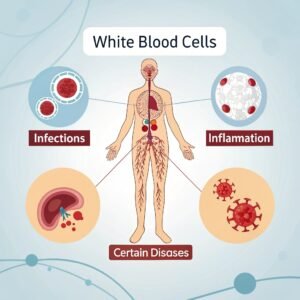Why Understanding Freezing Matters
Freezing is a common method to preserve food, but have you ever wondered if harmful bacteria can survive freezing? The answer might surprise you. While freezing halts bacteria from growing, it doesn’t necessarily kill them. When food thaws, bacteria reactivate and potentially cause foodborne illnesses if you don’t take proper precautions. Let’s dive deeper into this topic to understand how freezing affects bacteria and how you can protect your food.
How Can Bacteria Survive Freezing? Can Bacteria Survive Freezing?
Bacteria go dormant, not dead: Freezing temperatures slow down bacterial activity but do not destroy the cells. Harmful bacteria like E. coli and Salmonella can survive in a dormant state.
⦁ Cell damage varies: Some bacteria may experience cellular damage during freezing, but others are resilient and fully recover when thawed. Their survival depends on factors like freezing speed and storage conditions.
⦁ Contamination risks persist: Once frozen food is thawed, bacteria multiply quickly, especially if left in the “danger zone” temperature range (40°F to 140°F).
Best Practices to Reduce Risks
⦁ Proper freezing techniques: Freeze food promptly and at 0°F or below to slow bacterial growth.
⦁ Avoid refreezing thawed food: Each freeze-thaw cycle can allow bacteria to multiply.
⦁ Thaw safely: Use a refrigerator, cold water, or a microwave for thawing—never leave food out at room temperature.
Why Understanding Freezing Matters: Can Bacteria Survive Freezing?
Can bacteria survive freezing? Yes, but you can minimize risks with the right methods. Understanding how freezing works helps you prevent foodborne illnesses and keep your meals safe and healthy. By freezing food correctly and practicing proper hygiene, you ensure the convenience of frozen food without compromising safety.
So, the next time you store or thaw food, remember that freezing slows bacteria, but your handling keeps them in check!
NOTE: – IT IS ALWAYS RECOMMENDED TO CONSULT YOUR HEALTH CARE PROFESSIONAL. ALL DATA SHARED HERE ARE FOR EDUCATIONAL PURPOSES ONLY.









